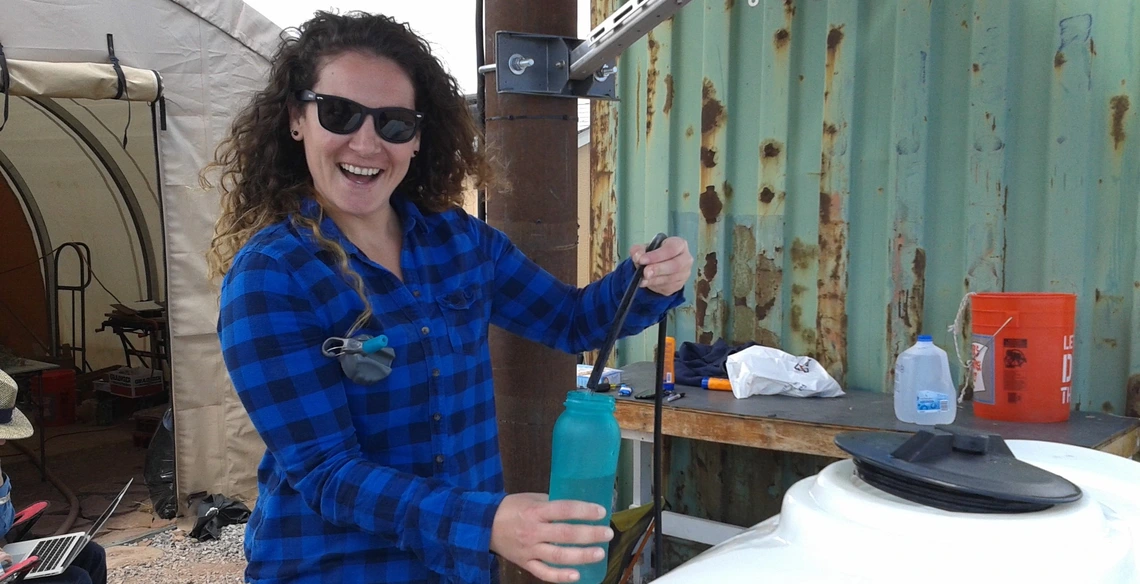Karanikola Named Runner-Up for U.S. ASPIRE Prize
The chemical and environmental engineering professor was a top candidate in a national competition focused on researchers gathering "diverse knowledge for a sustainable future."

Vicky Karanikola testing water filtration methods on the Navajo Nation.
The Asia-Pacific Economic Cooperation (APEC) awards the annual APEC Science Prize for Innovation, Research and Education (ASPIRE) each year. The award recognizes young scientists with a demonstrated history of excellence in research and cooperation with scientists from other APEC member economies. This year’s theme is “diverse knowledge for a sustainable future.”
The United States Department of State holds the U.S. ASPIRE Competition to determine the U.S. nominee to compete for the final, international APEC prize. In addition to the winner of the nomination, the state selects a runner-up. This year, Vicky Karanikola, an assistant professor in the Department of Chemical and Environmental Engineering, is the runner up for this prestigious recognition.
“This distinction is specifically important to me as this year’s award was focused on diverse knowledge and sustainability, and that is something that we really strive for with our community based research projects,” Karanikola said. “We are trying to figure out a way to close the gap between cutting-edge research and possible engineering applications in communities who very often unfortunately experience a delay in innovative information sharing.”
The U.S. nominations are based on a combination of scientific research excellence, commitment to cooperating with scientists from other APEC member economies, and contribution to the year’s theme. Karanikola specializes in water purification research, particularly in the context of Indigenous nations. In the Karanikola Optimization Research for Environmental Sustainability Laboratory, or KORES Lab, she is focused on using novel materials to remove contaminants like ammonia and per-and polyfluoroalkyl substances (PFAS) from drinking water.
She’s also part of the university’s Indigenous Food, Energy and Water Security and Sovereignty program (Indige-FEWSS), which aims to address food, energy and water challenges faced by Indigenous communities. Indige-FEWSS is a National Science Foundation Research Traineeship program. Karanikola’s projects are focused on off-grid water treatment with particular interest on removing contaminants such as uranium and arsenic.
Karanikola is also the UA principal investigator on a $500,000 grant from the USDA Department of Agriculture for both the UA and Diné College. The project will provide Navajo youth technical and hands-on experience in microbiology, molecular biology, chemical and microbial water analysis, and pressure-driven membrane processes, with the goal of training the next generation of Navajo water scientists.
"Providing STEM tools and opportunities to Native American college students to solve emerging water challenges is very important, as it creates a new generation of scientists and engineers ready to address water challenges within their own communities,” she said.
Karanikola earned her MS and PhD degrees in environmental engineering at the UA, before completing a postdoctoral fellowship at Yale University. She became an assistant professor in chemical and environmental engineering at the UA in fall 2019.





